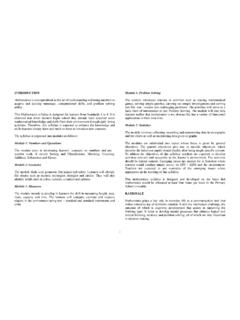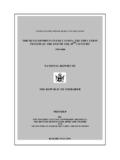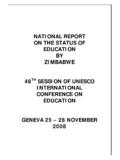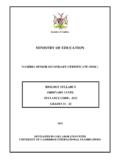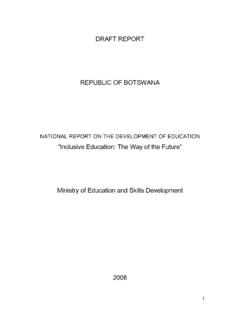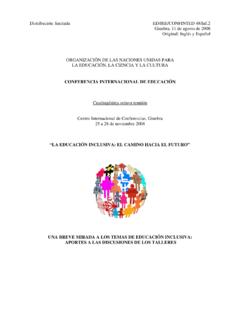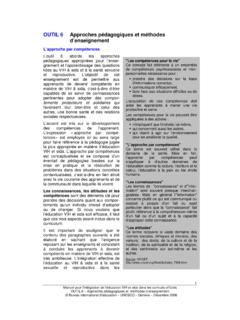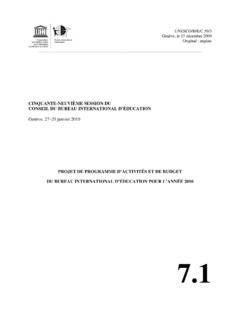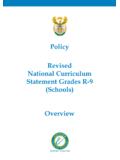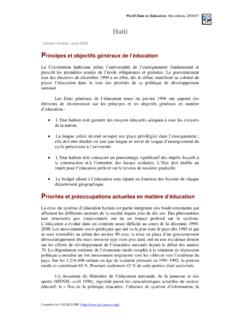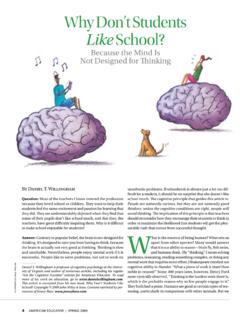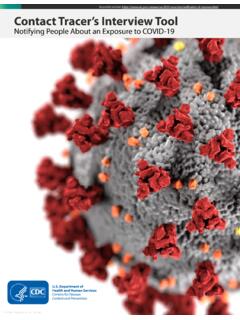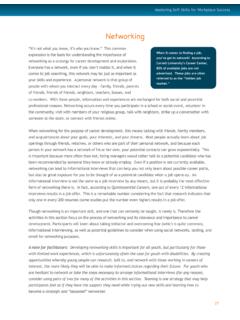Transcription of SEXUALITY AND LIFE-SKILLS
1 Supporting community action on AIDS in developing countriesParticipatory activities on sexual and reproductive health with young peopleSEXUALITY AND LIFE-SKILLSA cknowledgementsThis toolkit is the result of teamwork between sexual and reproductive health practitioners working with young people in Zambia, Malawi, Zimbabwe and Uganda. The first version of the toolkit was developed with International HIV/AIDS Alliance, Planned Parenthood Association of Zambia, Young, Happy, Healthy and Safe, the Ministries of Health and Education, and peer educators and young people in rural Eastern Province, Zambia. The toolkit was tested by peer educators and revised on the basis of their experience and the lessons learned in monitoring.
2 The toolkit was further developed with the Alliance Regional Youth Programme partners in Zimbabwe, Malawi and Zambia, and with the CORE Initiative in wish to acknowledge the ideas and creativity of all the practitioners who have developed the toolkit and those who have been developing participatory activities over many years and in many countries. We do not know the source of many of these activities but would to like to acknowledge three resources in particular: Happy, healthy and safe: youth-to-youth learning activities on growing up, relationships, sexual health, HIV/AIDS and STD LIFE-SKILLS . Family Health Trust Zambia (1998) Lusaka, : a guide for young people.
3 Gill Gordon (2007) Macmillan Education, Oxford, Stones: a training package on HIV/AIDS, communication and relationship skills. Alice Welbourn (1995) Strategies for production of this publication was made possible through the support of Comic Relief, The Morel Trust, DANIDA, Sida and BUZA. The opinions expressed herein do not necessarily reflect the views of these donors. International HIV/AIDS Alliance, 2008 Registered charity number 1038860 Information contained in this publication may be freely reproduced, published or otherwise used without permission from the International HIV/AIDS Alliance. However, the International HIV/AIDS Alliance requests that it be cited as the source of the Petra R hr-Rouendaal 2008 Designed by Jane Shepherd, UK Printed by Dexter Graphics, UK Published: February 2008 ISBN: 1-905055-44-71 Trust and confidentiality1 CONTENTSINTRODUCTIONU sers and aims of the toolkit 4 What do young people need to learn about SEXUALITY and LIFE-SKILLS ?
4 5 Guide to using the toolkit 6 How to use the activities 8 Activity record sheet 12 Course planner 13 SESSIONS1 Introduction to SEXUALITY and LIFE-SKILLS 142 Introductions and hopes and fears 163 Trust 174 Working together 185 Ground rules 196 Listening pairs 207 Body language 218 I m OK, you re OK 229 How we are the same, how we are different 2310 The road of life and possible futures 2411 Puberty physical changes 2612 Menstruation 2813 Wet dreams 3114 Developing from a child to an adult 3315 Growing up as a boy and as a girl 3516 What we think is right for boys and girls 3717 Where do we get our ideas from?
5 3918 What do boys and girls think and feel? 4219 Friendship between boys and girls 4420 What is love? And how good a friend am I? 4621 Saying what we want and how we feel 4822 Ways to stay strong 522 Trust and confidentiality2 CONTENTS23 Making decisions 54 24 Keeping to your decision 5625 SEXUALITY throughout our lives 5826 Respect 5927 Talking with adults about sex 6228 Shall we have sex or not? 65 29 Saying No to sex until I am ready 6730 Helping ourselves 7131 Understanding our bodies and feelings 7432 The quiz 7833 Talking about our feelings and SEXUALITY 8034 Sexual friendships with the same sex 8135 Having a happy sex life 8336 Let s use a condom 8537 Having sex only with each other 9238 Early marriage 9439 Having sex with older people 9740 Using sex to get on in the world 9941 Income generation 10242 Understanding and fighting corruption 10343 Human activity as a way to alleviate poverty 10444 Good touch.
6 Bad touch 10545 Protecting ourselves from rape 10946 What to do if someone is abused or raped 111 47 solving problems 11248 Children by choice, not chance 11549 Taking responsibility for pregnancy 12050 Coping with teenage pregnancy 12251 Sexually transmitted infections 12452 Getting proper treatment for STIs 1283 Trust and confidentiality3 CONTENTS53 Protecting ourselves from STIs 12954 Protecting ourselves from HIV infection 13255 How is HIV transmitted in the community? 13756 Journey of hope and future islands 14057 Living with HIV infection 14258 Prevention of parent-to-child transmission 14659 HIV stigma and discrimination 14860 HIV and human rights 15361 Drug use and abuse 15662 Coping with anger 15963 Our feelings and responses to criticisms 16264 Violence 16465 Conflict resolution 167 RESOURCES 1694 Users and aims of the toolkitThis toolkit is written for anyone who wants to facilitate participatory learning activities with young people to equip them with the knowledge, positive attitudes and skills to grow up and enjoy sexual and reproductive health and well-being.
7 This includes peer educators and leaders, outreach workers, teachers, community workers and aims to assist facilitators to: provide accurate and complete factual information to young people plan appropriate educational activities for groups of young people that enable them to: analyse their own situations, resources and needs apply new knowledge to their own lives increase awareness of their own values and attitudes develop their self-esteem and confidence develop life skills, for example, communication and assertiveness skills, problem - solving and decision-making build trust and take collective action as a group. follow up and evaluate their work.
8 The educational approach to behaviour change used in the toolkitExperience has shown that education which has a positive impact on attitudes and behaviour has the following characteristics:It is a two-way learning process between equals that starts from what people already know and feel. Everyone is respected and valued, whatever their age and actively learn through participatory problem solving activities related to their own lives. They experience a new way of doing things or how it feels to be in someone else s shoes and this changes develop positive values and behaviour through exploring options, understanding the different influences on their lives and coming to their own views and decisions, rather than being told what to order to adopt healthy sexual behaviour, young people need to have accurate information (key facts), opportunities to apply this to themselves (values and attitudes) and to feel good enough about themselves to think that they are worth looking after (self-esteem).
9 Then they need the skills to act on their new people are more likely to adopt healthy behaviours if they see that this will have a positive effect on their lives than if they are asked to give up something to avoid a bad example, young people are more likely to avoid smoking if they believe that this will make them play football better or be more attractive than if they are told to stop because they might die of lung cancer some time in the education is based on the reality of young people s lives, their opportunities and difficulties and the choices open to them. The education is based on internationally and nationally agreed rights of the child, of women and of human beings in areas of sexual and reproductive do young people need to learn about SEXUALITY and LIFE-SKILLS ?
10 People worry that if we teach young people about SEXUALITY , it will encourage them to start having sex early. The evidence shows sex education either has no effect or young people delay sex for longer and when they do start, they are more likely to protect themselves from pregnancy, STIs and before marriage, and lifelong fidelity within it is the moral ideal of many religions. Many people promote this ideal to reduce the spread of HIV. However, some young people are born with HIV and, although we may try our best to have good and safe sexual relationships, our lives are complex and we do not always achieve our goals. This puts us at risk of HIV and other problems.
